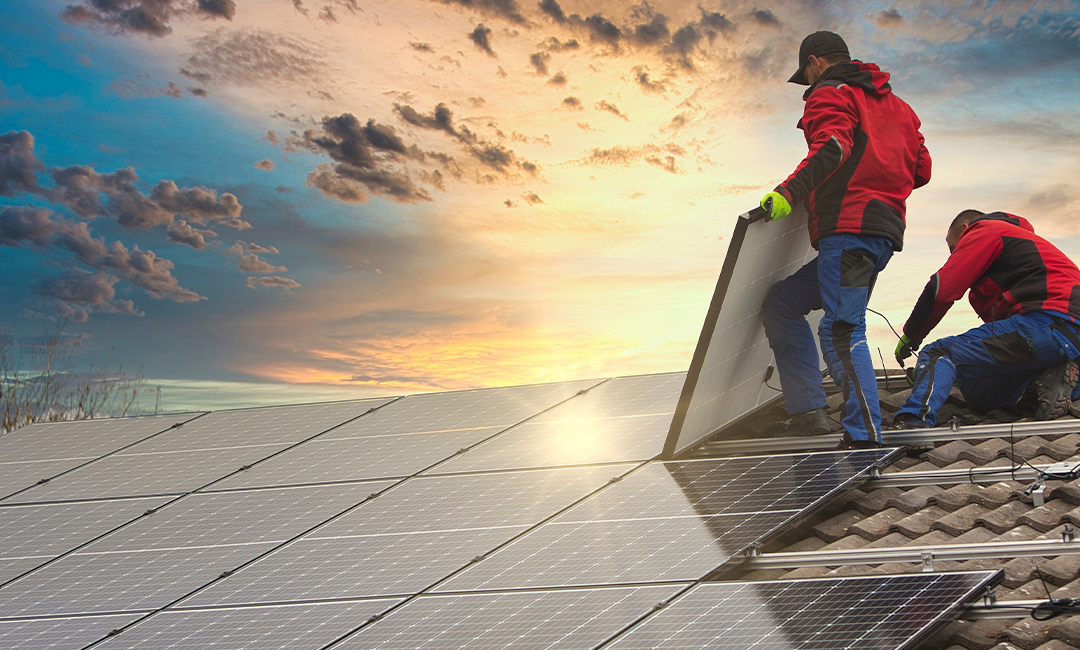Table of Contents
In recent years, the global emphasis on clean, renewable energy has driven homeowners to seek sustainable solutions for their power needs. One of the most effective ways to reduce carbon footprint and cut energy bills is by loan for solar rooftop. However, the upfront cost of solar panels can be a significant financial commitment. This is where loans specifically designed for solar rooftop installations come into play. Let’s explore why obtaining a loan for a solar rooftop is not only feasible but a strategic move for long-term savings and environmental stewardship.
1. The Growing Demand for Solar Energy
With the rising cost of electricity and growing concerns about environmental impact, solar energy has emerged as a viable and eco-friendly alternative. Homeowners who opt for solar rooftops can harness sunlight to generate power, reducing reliance on conventional energy sources. The shift toward solar energy is supported by various governments worldwide, which provide incentives and subsidies to make solar installations more affordable. Despite these incentives, many individuals still face financial barriers when considering solar systems.
2. Understanding Solar Rooftop Loans
A solar rooftop loan is a type of financing specifically tailored to fund the installation of solar panels on residential or commercial properties. These loans can be obtained from banks, credit unions, or specialized lenders and are usually structured with reasonable interest rates and flexible repayment terms.
Key Features of Solar Rooftop Loans:
- Low-Interest Rates: Many financial institutions offer solar loans at competitive rates, making them an attractive option compared to personal loans.
- Flexible Repayment Options: Borrowers can select repayment periods that align with their financial situation, typically ranging from 5 to 20 years.
- No Collateral Required: Most solar loans do not require property or other assets as collateral, providing peace of mind to homeowners.
3. Why Consider a Loan for Your Solar Rooftop?
- Immediate Cost Savings
While the upfront cost of installing a solar rooftop can be substantial, a loan helps spread the payment over several years. This allows homeowners to avoid the burden of a large one-time expense. Moreover, monthly loan payments are often lower than average electricity bills, meaning you can start saving money almost immediately.
- Boosting Property Value
A home with a solar rooftop is considered a high-value asset in the real estate market. Studies have shown that properties equipped with solar panels sell faster and at higher prices compared to those without. By securing a loan for solar rooftop homeowners not only benefit from reduced energy bills but also increase their property’s resale value.
- Environmental Impact
Investing in solar energy contributes significantly to reducing greenhouse gas emissions and combating climate change. By shifting to solar power, homeowners can take part in global efforts to promote clean energy and sustainability. This green choice aligns with the increasing societal shift towards environmentally conscious living.
4. Types of Solar Rooftop Loans
Solar loans can come in various forms, including:
- Secured Loans: Backed by collateral, such as home equity, which can lead to lower interest rates.
- Unsecured Loans: Do not require collateral but may have slightly higher interest rates.
- Green Energy Loans: Offered specifically for eco-friendly projects like solar installations, often supported by government programs or non-profit initiatives.
Each type has its pros and cons, and potential borrowers should assess their financial standing and long-term goals before selecting the best option.
5. Tips for Choosing the Right Loan
- Compare Lenders: Research different lenders to find the best interest rates and terms. Don’t hesitate to negotiate with your preferred institution.
- Review Government Incentives: Check for local, state, or national programs that offer subsidies, tax credits, or rebates for solar rooftop installations. These can significantly reduce the overall cost.
- Evaluate Loan Terms: Be sure to understand the total cost over the loan’s lifetime, including interest and any additional fees.
6. Return on Investment (ROI)
Installing a solar rooftop funded by a loan may seem costly upfront, but the long-term benefits often outweigh the initial expenses. The average payback period for solar systems ranges between 6 to 10 years, depending on energy usage and solar panel efficiency. After this period, homeowners can enjoy nearly cost-free energy for the remaining life of the system, which typically lasts 20-25 years. This translates to decades of savings on energy bills and an overall positive ROI.
Conclusion
Investing in a solar rooftop with the help of a loan is a strategic decision for any homeowner looking to reduce energy costs, increase property value, and contribute to a cleaner environment. By taking advantage of available solar loans and government incentives, homeowners can access affordable, renewable energy while making a positive impact on the planet. The move toward solar power is not just an economic choice; it’s a step toward a sustainable future.

